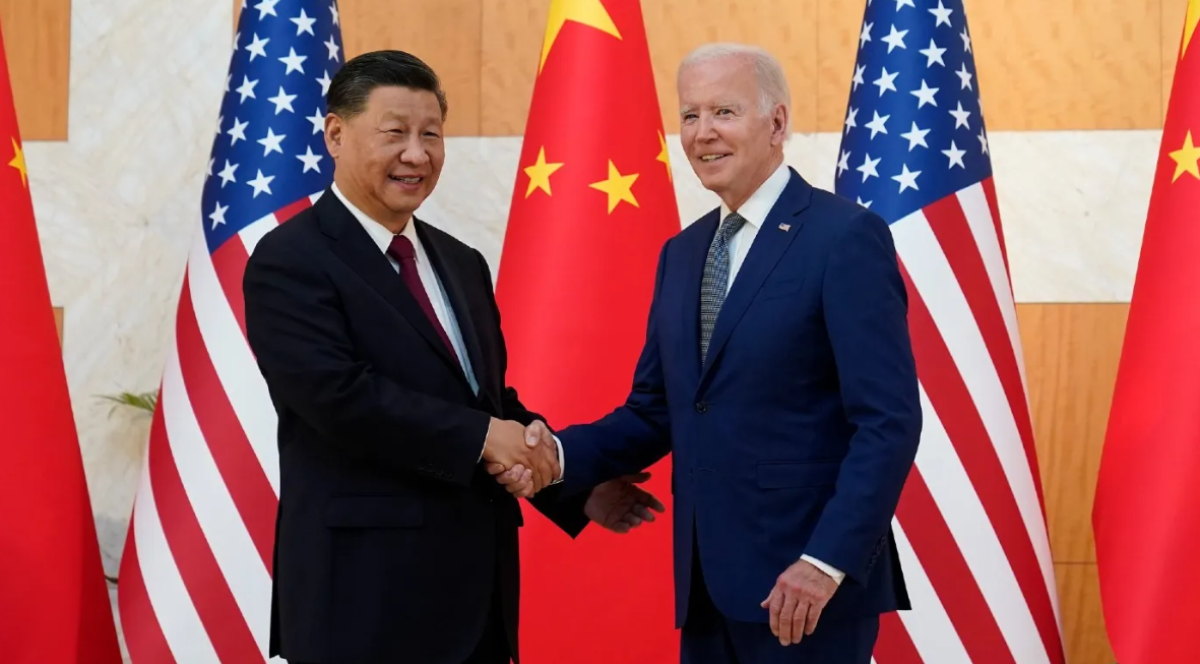Chairman Gallagher's Opening Remarks at "The Biden Administration's PRC Strategy" Hearing

Click HERE for full remarks.
-
Early in President Biden’s term, there seemed to be broad continuity in the Administration’s China strategy.
While not perfect, I’d go as far as to say that, for CCP-realists like myself, there was a lot to like.
Secretary of State Blinken reiterated his predecessor’s determination that the CCP was committing a genocide against the Uyghur people in Xinjiang.
On October 7, the Biden Administration levied historic export controls on advanced U.S. semiconductors and equipment going to the PRC. The Biden Administration then succeeded in aligning this policy with critical allies Japan and the Netherlands.
The Department of Defense also reached agreements with the Philippines and Japan to expand our defense presence in the region. I’d like to congratulate Assistant Secretary Ratner on the great news this week involving expanding access in Papua New Guinea.
These were not easy achievements, and I want to give our witnesses due credit for them.
But the PNG news aside, six or seven months ago, something strange happened. It was like some bat signal went up and the administration seemed to shift focus in its China policy.
In February, we watched the Chinese spy balloon lazily drift over some of our most sensitive military sites while the Biden Administration seemed to fret about provoking China. Instead of holding the CCP accountable, incredibly, administration officials chased CCP diplomats around the world, desperately seeking meetings like ardent suitors, as if they, not the CCP, had something to apologize for.
Perhaps most troubling, the administration has also delayed policies to end Huawei export licenses, restrict outbound capital flows in critical sectors, and hold CCP officials responsible for the Uyghur genocide accountable.
Clearly, the push for high-level engagement has come at the cost of defending ourselves from CCP aggression.
Earlier this week, Assistant Secretary Kritenbrink claimed that the Administration has “taken an unprecedented number of actions against China.”
Let’s fact check that statement.
The administration has used every defensive tool, from sanctions to entity listings, to Chinese military company designations less than the administration before it.
It’s been over two years since a single Hong Kong or PRC official was sanctioned for the erosion of Hong Kong’s autonomy.
The administration has refused to implement the sanctions required by the bipartisan Uyghur Human Rights Policy Act and Deputy Secretary of State Wendy Sherman reportedly lobbied Congress to water down provisions in the Uyghur Forced Labor Prevention Act.
While, since entering office, the Administration has added more than 230 PRC entities to the Department of Commerce’s Entity List, that is still short of the 260 entities added under the last two years of the previous Administration alone. The Administration has sanctioned more PRC persons for illegal fishing than it has for genocide in Xinjiang.
I say all this not to score partisan points. When the administration makes good policy, I will commend it. The problem is that right now, good policies that would earn bipartisan support are stuck in the interagency process, apparent sacrifices on the altar of engagement.
I hope we can have a candid and productive conversation about all this today. We are here to conduct oversight, but we’re also here to offer help. After decades of letting our guard down, implementing defensive policies towards the largest country in the world is incredibly difficult.
You have to fight the bureaucracy. You have tofight Wall Street. You have to fight corporate boardrooms. And you have to fight CCP efforts to undermine our defenses.
But while I hope to hear some tough questions and spirited answers today, I just want to end by saying we are all on the same side. In this competition, we are all Americans. We are the good guys, and we’re going to win.